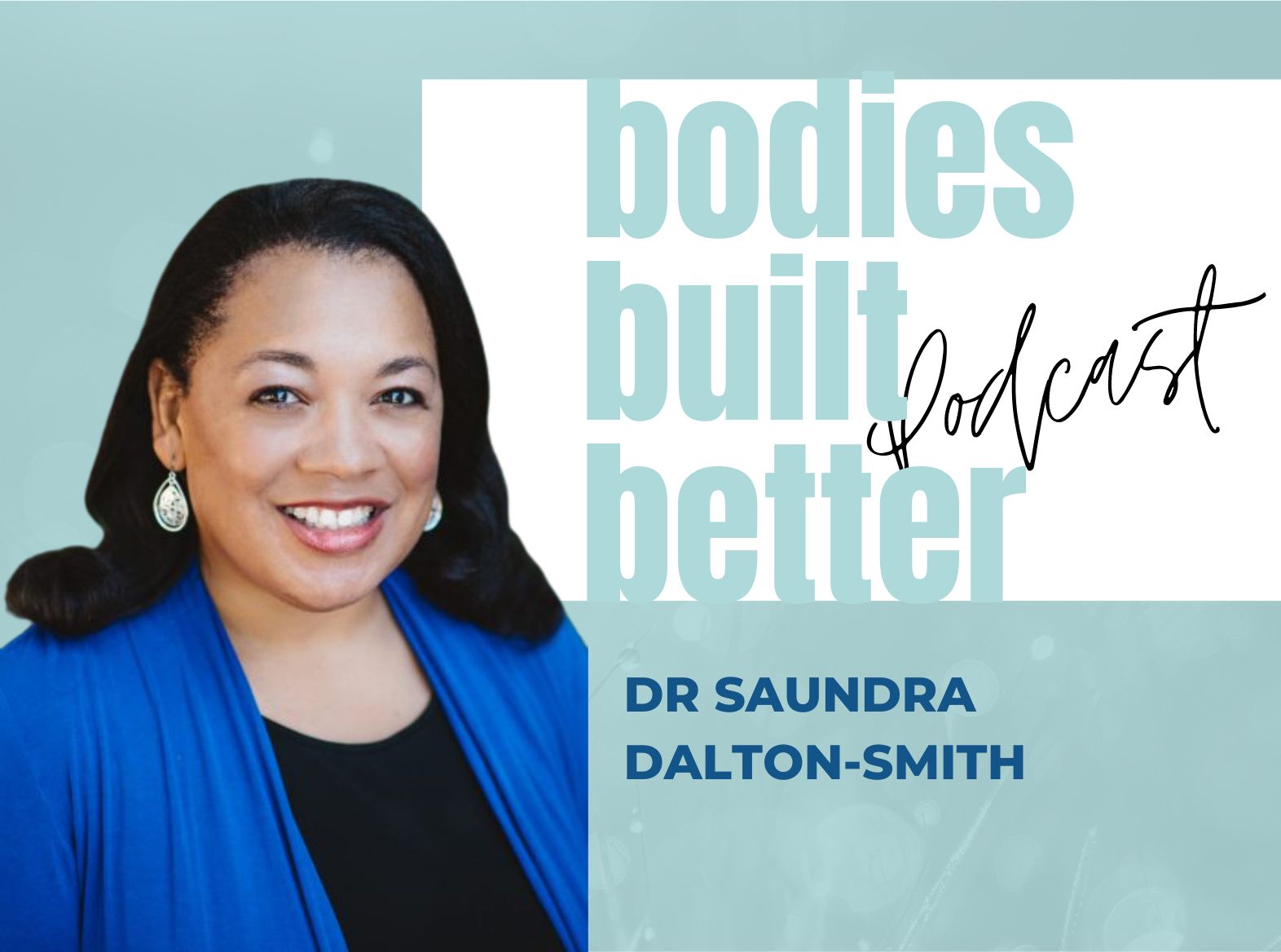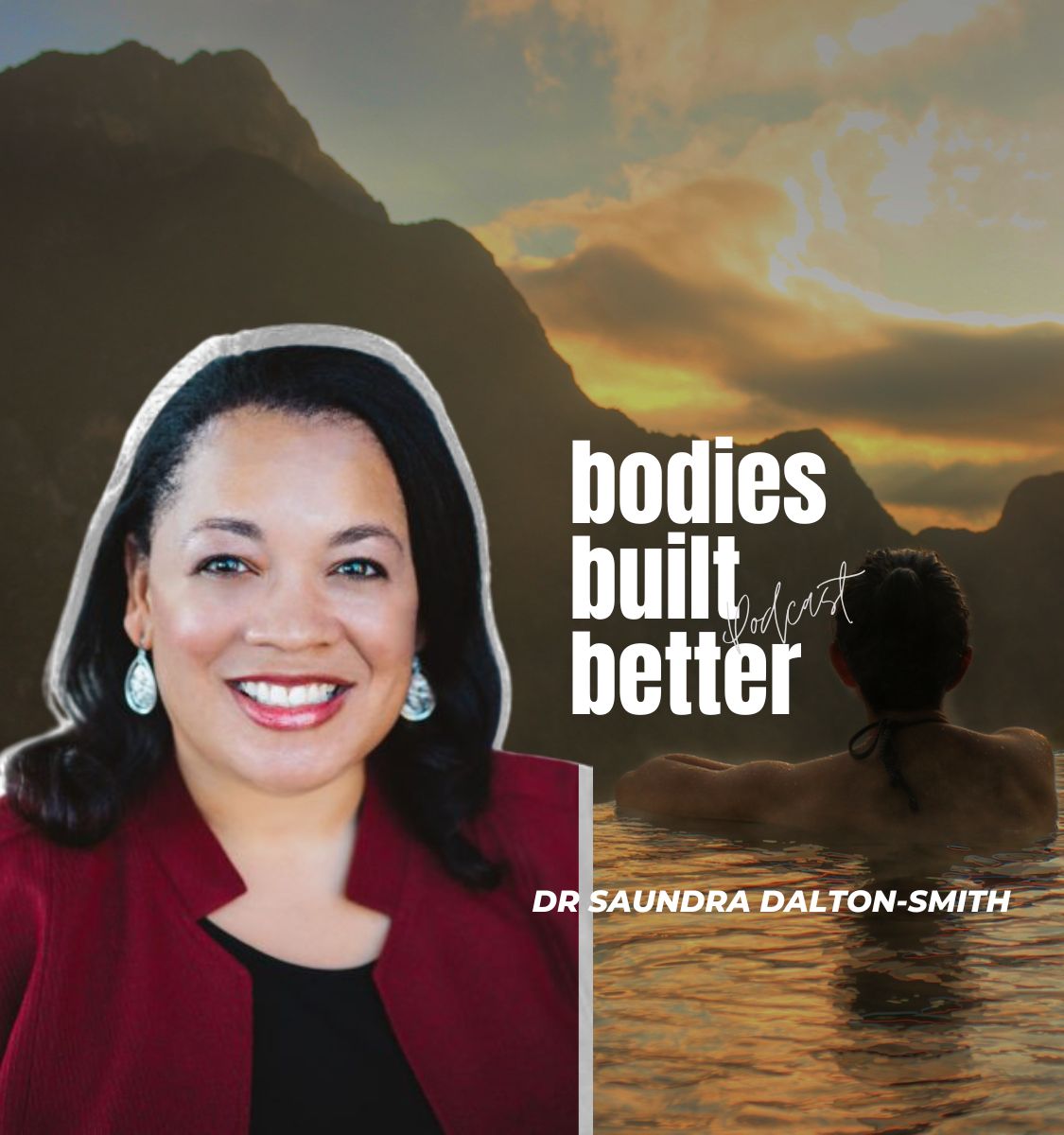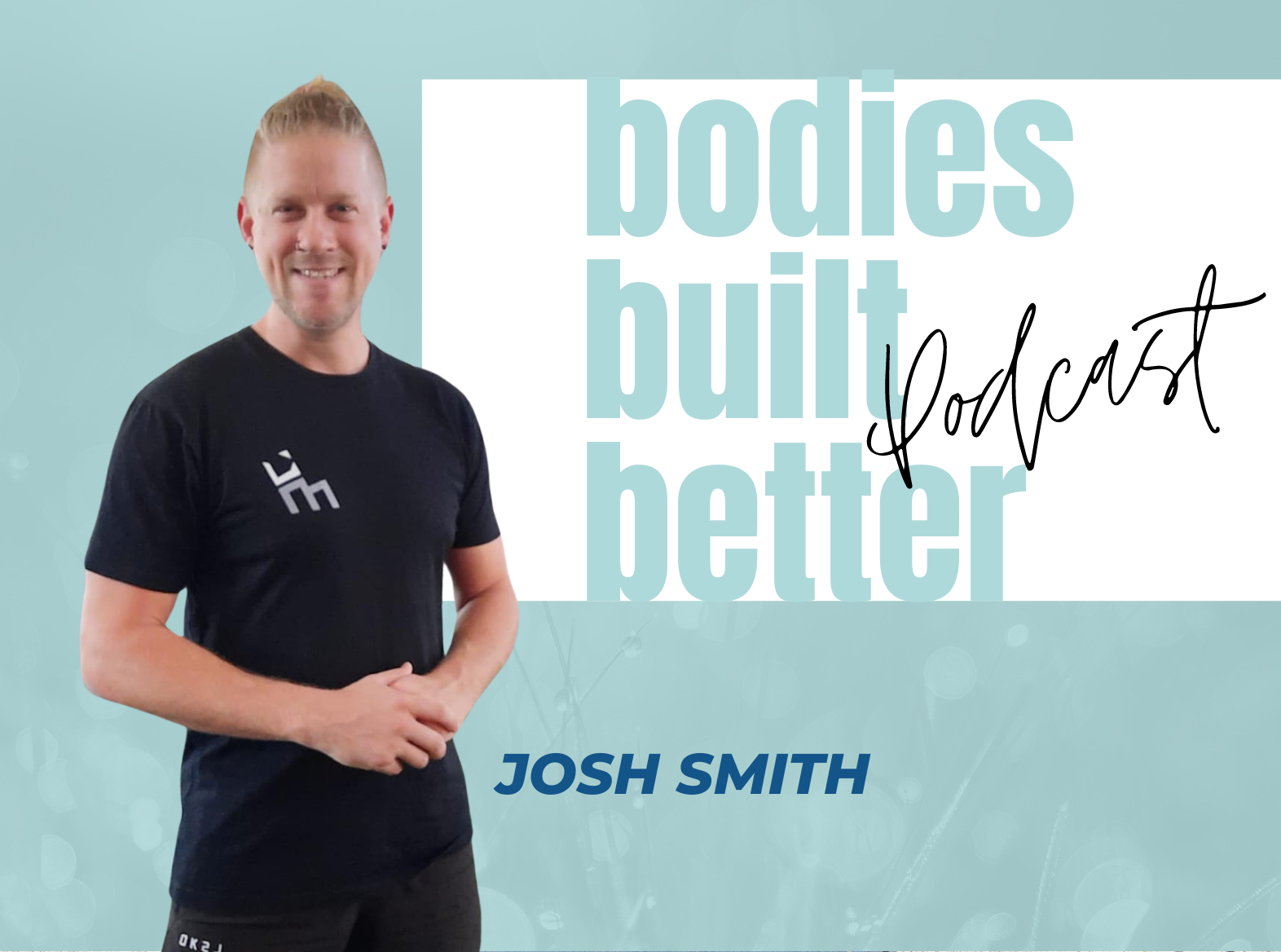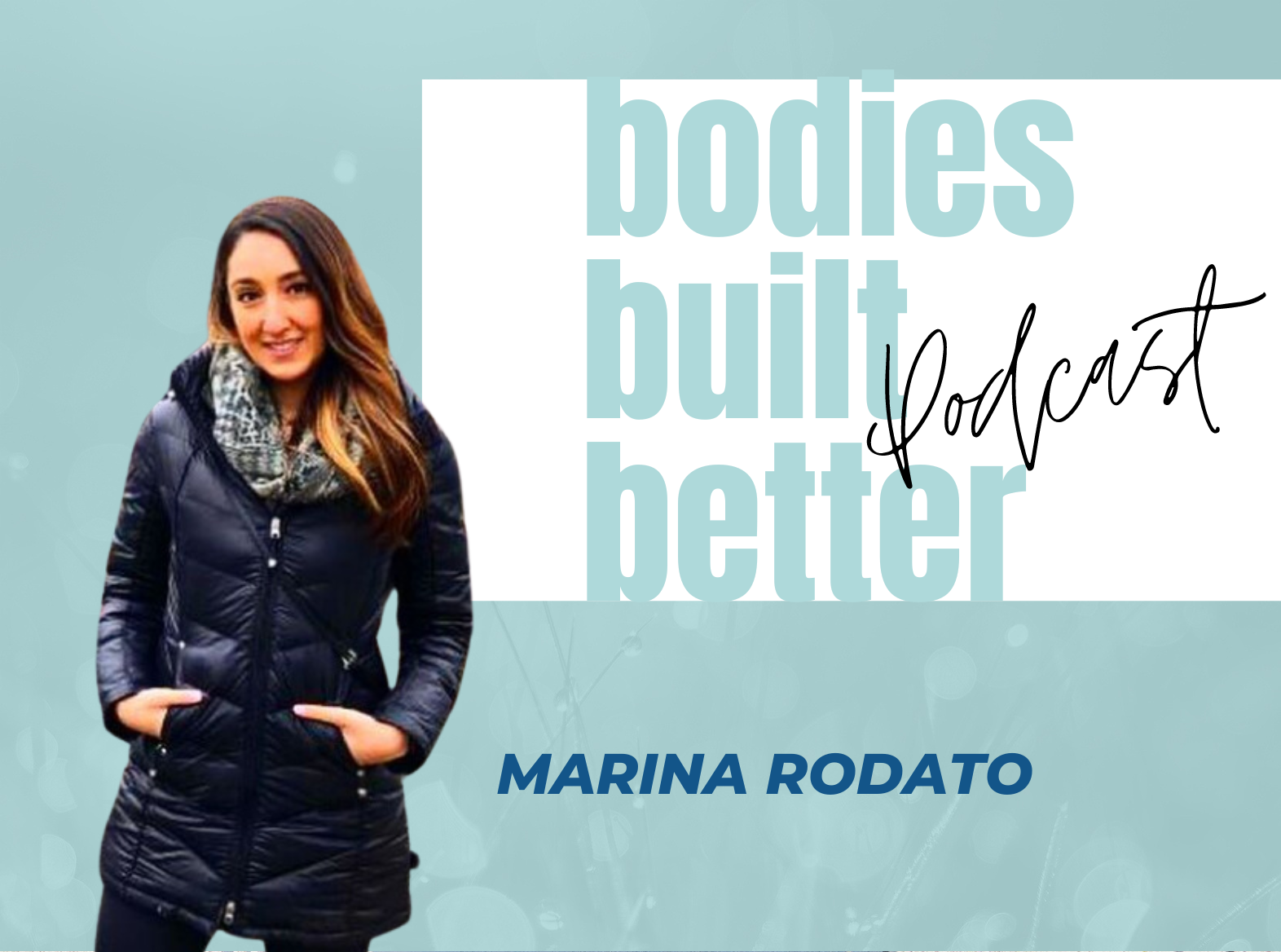Why Recovery Matters: The 7 Types of Rest You Need
Jackie 3:13
Dr. Saundra, thank you so much for chatting with me today. Welcome to the Bodies Built Better podcast.
Saundra 3:19
Thanks for having me.
Jackie 3:21
It’s so good to have you because your work has really changed my outlook on how I approach rest and recovery. And it’s certainly now the topic with my clients in how they approach rest and recovery. So I’d love to start this conversation on how you came to figure out there is more than just one type of rest and how you came to write about it.
Saundra 3:50
Yeah, well, that was really organic initially to begin with, I personally burned out. And you know, when you get to a place where you’re trying to figure out your own treatment within something, it makes you dive a little bit deeper sometimes. So there wasn’t a lot of research out there. Most of what was out there at the time when this was going on for myself was about sleep. There was an entire sleep revolution that was going on, everybody was talking about getting better sleep. But what I wasn’t hearing anyone talk about was what happens if you’re so tired after you get eight hours of good sleep. And that’s what I was finding myself in that situation I would I was doing all the things getting what was documented as high-quality sleep, I did the sleep studies did all the things and I would still wake up exhausted. And I think that’s what made me dive into is there something else that’s fatigued? Am I some different type of exhaustion than just needing more sleep? And, you know, as a physician, I had patients coming in to me every day, saying the same things. I’m tired, you know, I’m having all these different symptoms that are nonspecific. And it just with all started to come together, I started to look at some of the different things they were saying, how they compared to some of the things I was saying, taking it back to the research to see if there’s any, any data on what that could be, and how we could further–really bring forth those restorative activities into our day to day lives.
Jackie 5:13
Yeah. And so what were people coming in and saying, what was there a commonality between people’s exhaustion?
Saundra 5:21
It was many things. And that’s–I think that’s what made the seven different areas come forth from because one person would come in and say, “I sit all day, why does my body ache? And it’s relating to the active component of physical rest or physical rest deficit, another person would come in and say something along the lines of, you know, I work on my computer all day, and, and I get good sleep, but I can’t seem to shut my–you know what, I’m tired when I get go to bed at night. But I can’t seem to shut my mind off. I’m like, my mind is racing, and I go to sleep. But I feel like I’m still thinking the thoughts while I’m still–while I’m sleeping, describing a mental rest deficit, or another person might say, you know, I don’t really feel like I’m tired, I just am not motivated in my work anymore. I just don’t have the passion, I don’t have the joy, the excitement in referencing into a creatives rest deficit. So there were so many different components of what people were saying, felt depleted in their lives. And so it was just looking at all of these different places that people felt that they were exhausted in. And then taking a look at what some of the research was showing, as far as some of the things that they could begin to do, that oftentimes many people didn’t associate with–with, well-being, or health. or anything, they just thought they were extras, and I get around to it, I’ll do this thing. But they weren’t it putting the connection together with how it actually affects them to be able to enjoy their life, live their life, be healthy, happy, all the things.
Sleep Is Not the End-All, Be-All of Rest
Jackie 6:52
That’s right. And I guess when the message is get good sleep, that’s where the focus goes. And we forget about that. There are other things to look at why and obviously, sleep is incredibly important in health and recovery. But why isn’t it? I mean, you’ve just mentioned a bit of it. But why isn’t it 100% foolproof,
Saundra 7:14
Because that’s not the only type of way our body restores. And really, when I talk about rest, that’s what I’m referring to is the restoration of the places within ourselves that are depleted. throughout our day, it’s a form of really intentional energy management for ourselves personal energy management, and looking at, if we just simply look at sleep, which is what a lot of us do, we use the word sleep and rest interchangeably, I’m gonna go take a rest tonight, you know, I’m gonna go sleep as we say, exactly as if they’re the same thing. And when you’re thinking about rest is having these seven different components that I discussed. And in my book, if we just look at sleep, as the end all be all of restorative activities, then you are basically omitting all of the other types of rest, you’re only looking at the physical, that one out of the seven. And you’re basically saying, Well, I don’t really need to restore my emotions, or my relationships, or my mental capacity or my creativity, I’m just gonna go to sleep and hope that takes care of all the rest of those things. And sleep does not actually improve some of those things. You can’t be poured into relationally while you’re sleeping, you can’t be poured into creatively while you’re sleeping. You can help your neurons a little bit but it’s not going to help you focus during the day while you sleep. So there’s–there’s some components of it that we are asking sleep to do. That is simply not the job of what sleep does.
Jackie 8:43
So important, and I really, really love that intentional rest management, such a great term. Let’s dive into the seven types of rest. What are they?
Saundra 8:56
There are seven types include the physical, mental, spiritual, emotional, social, sensory, and creative.
Physical Rest: The Key to a Healthy, Balanced Life
Jackie 9:04
Great, and I’ve I feel like out of all of them, the physical rest is the most obvious, but let’s start there. What is physical rest? And how do we, I guess, understand the unrest of it, and then the rest component of it?
Saundra 9:22
Yeah, so physical rest is the one most of us are most familiar with, because it does include sleeping, but that’s only one part of it does, of course has two components. It has that passive component that sleeping and napping and what I call the cessation activities, the stopping where you you get restored in the stopping of activity, but then it also has an active component, where you get restored in the doing of something that’s a restorative process, which include things like massage therapy or yoga or stretching or using a foam roller or tapping or you know, all these things that we do to improve the circulation or the lymphatics drainage within our bodies or the muscle and flexibility. And so you need to be aware of just that there are these two components. Because sometimes a body that sedentary all day doesn’t need more sedentary work doesn’t need more cessation activities for restoration, actually what it’s needing is a little bit of live activity like walking, where you’re getting the circulation and the lymphatics moving so that the body can heal itself, because then it’s getting that blood flow to everything.
Jackie 10:30
Yeah, absolutely. And if we take it to, um, I guess, for athletes who practice, you know, their restorative practice is the most beneficial part for their body. And the types of exercises and the goals that they want to be achieving. In terms of the rest that they need, whether it’s how do we determine whether it’s more of the active because they are doing a lot of, but that’s the thing that they really love. That’s the thing that they get most joy from. And the rest side of things. They think of more of those cessation? I guess, like you said that the sleeping, how do we determine what they need the most?
Saundra 11:15
Yeah, that’s, I love this question, as my husband’s an ultra marathon runner and a triathlete. So he’s always working out. Yeah, hours a day. And that’s, that’s his love. That’s his passion. That’s his, that’s part of his stress-release process. But also he’s, he’s, he has now come to fully embrace the active component of physical rest, because in order to, to prevent injuries, athletes have to understand active physical rest. Because if a muscle gets tight, it’s not going to perform at the same level, it would if it’s relaxed, and in its healthy state. So using things just like stretching, stretching is not the lack of activity doesn’t mean you have to completely stop working out, maybe having a counter activity that you do you have your favourites, maybe it’s–maybe–maybe you are, you know, a runner, and so your favourite activity is running. Is there an activity that you can do that doesn’t require your legs, that’s so let you be active, maybe swimming is your restorative activity, you–that you allow your legs to just be buoyant, and maybe use flippers during that time and just allow your legs to relax while you work on the circulation part of the upper body, or using things like a foam roller, run–run every day. But can you use a foam roller just to make sure that your–your legs aren’t getting tight and tense and painful. And getting into a place where you can put yourself prone to injuries. So it’s just being aware of how your body’s feeling. And because people who are who enjoy sports and who are very athletic, they they learn how to tell their bodies to shut up. I mean, it’s a part of actually PR, and you can’t PR and once you tell your body shut up, I’m not I’m not going to stop them. That’s kind of keeps going. But you then have to do you have to stay with a level of self awareness of when you need to listen to your body. Because your body is also trying to help you keep doing the thing you love to do. And if you get to attune to just telling it to stop talking to me, you won’t listen when it actually is telling you something important.
Spiritual Rest: The Other Side of Recovery
Jackie 13:21
Yeah, that’s a huge one. And obviously a very common thing that happens, especially in my line of work when people come on the table. And they’re past that, that moment of return. But um, yeah, listening to the body. It’s such a huge one. And you’re right. Athletes do switch that off and are really good at it. But um, tuning in is so important. I’d love to, I’d love to talk about spiritual rest. Because on the flip side, whilst I think physical is the easiest to understand, feel like the spiritual is. I certainly when I saw that one, I’m like, what is spiritual rest?
Saundra 14:02
Yeah, spiritual rest is different for each person, I would probably say this is the most controversial aspect of my book, because I’m very open about sharing what I believe in part, as I mentioned in the book, because to not share it, it’s inauthentic for me. So that’s more stressful for me to not share who I am, and try to be somebody else than just be who I am. But I do realise that many of the people who I work with don’t have the same spiritual beliefs that I do. So at–looking at spiritual rest is really at the very core of it is understanding that we each have a desire to belong. We each have a desire to have empathy towards others and compassion and be part of humanity as a global whole, and pour back and feel like our lives have purpose and meaning and that’s at the very core of spiritual rest. Some people experience that through faith based situations and institutions and organisations that they’re in. Other people experience that through other causes and groups and things that they participate in where they still have that experience. So I always tell people, you have to kind of engage with spiritual rest at your level, whatever that looks like. But whether you believe in a faith-based system, whether you even believe in a god period, if you are a human living on the Earth at some part of you has to believe in the connectivity of humanity. And the–the need, we all have to have empathy and concern and compassion for each other. And look at what is your part in that, that you find fulfilment in.
How to Choose From The 7 Types of Rest
Jackie 15:31
Oh, absolutely. That’s such a huge one for me. Back in 2021, I had moved into state and I had taken, you know, months off of work, and I really, I kind of felt that lost, being lost, not having that purpose, not having that connection with people and sharing my work. And even though I wasn’t doing a lot, I still felt tired and exhausted and a bit of that lostness. If that’s, that’s not a word. But, you know, that’s how I felt and, and this, I mean, yeah, completely resonated with me on so many levels.
Saundra 16:13
Yeah, I always have to tell people to keep an open mind with that, because it’s very, it’s really funny, because when I, my friends will say, Did you see that review on Amazon? I mean, the book has like my book, Sacred Rest is like 1000 reviews almost. And like, most of them are five stars. But there will be those people that’ll say, I don’t know why she included spirituality. I don’t need that in my life. And I’m like, Okay, I’ll buy comment, even in the very first chapter of the book. My comment is, it’s like a buffet, you don’t eat everything, at any buffet, you go to. Find the parts that fill you that meet what your desires are. We each have different diets. If you have keto, if you have whatever, you know, whole food, whatever diet, you’re doing, YouTube, you do you, but you don’t then down everybody else who’s doing them as well. That’s how that’s how I look at it. I think every person when they approach these seven, some of these you’re going to, you’re going to connect with on a deeper level, because they’re the ones that you personally are training. Others you may be good with, because it’s not an area that you’re personally training. So you have to choose of the seven types of rest. What are the ones that I have a personal deficit in, and then you focus on those, you don’t necessarily try to eat the whole elephant and you know, hit all seven at one time, but choose the ones that you really need. So I love that you could identify the ones that you needed, and then focus on your attention there.
Jackie 17:44
Yeah, absolutely. And you know, even back to your analogy of the buffet, yes, you might not like everything, but you might go oh, that sounds interesting.
Saundra 17:54
Exactly. Try something new.
Creative Rest: How to Fill Up Your Inspiration Cups
Jackie 17:56
Exactly. Let’s talk about creative rest. Where do we start there?
Saundra 18:02
Yeah, it really looks at how do you stay inspired? How do you feel backed up your inspiration cups, so to speak. So the when we started like, looking at this whole concept of a creative rest deficit, it came from the the mindset of when we are problem solving, when we’re being innovative when we’re thinking outside of the box, when we’re using creative energy, it can be depleted, what then are we doing to pour back into that part of ourselves, because oftentimes, many of us don’t even see ourselves as creative. We think of creativity as artists, musicians, and you know, all these people who are doing those types of things. But if you’re solving problems, if you’re having to think outside of the box and have solutions to things in your job or in your home, that’s the same process as any other type of creativity, you’re taking something and manoeuvring it around and coming up with something new. So we have to really start looking at what inspires us. And so with creative rest, you’re allowing yourself to be filled back up by the beauty around you. It’s an intentional perception of the beauty around you and allowing it to pour back into you. So whether that’s natural beauty, like the ocean and the mountains and the flowers and trees, or if it’s man-made beauty, like music, or art or theatre or dance, where you get to choose what inspires you, you get to choose what fills that part of yourself back up. But we need to see the value in it not it’s just something that we do for fun, on our vacations once a year. But actually, if you’re someone who’s a highly creative, innovative type person, you’re constantly coming up with new ideas and concepts. Or if you’re someone who’s having to diagnose people, if you have clients and customers, and your consultant, or your physician, or any of those kinds of things–a coach. You’re having to look at someone’s current state and they and creatively think about the journey from that state to where it is you’re trying to get them to, most of us have no recollection or realisation of the amount of creative energy we use in a day. And we have no system in place for restoring that. So I find that to be one that many people have come chronically depleted, and they’re just living in this state of just creative rest deficit.
Where To Find Dr Saundra Dalton-Smith
Website: www.ichoosemybestlife.com
Website: www.restquiz.com
Instagram: @drdaltonsmith
If you enjoyed this episode of The Bodies Built Better Podcast please hit SUBSCRIBE and share it with your friends.
Head over to The bodes built better podcast page – https://jackietann.com/the-bodies-built-better-podcast/
Follow @jackietann_rmt and @bodiesbuiltbetter on Instagram
Got questions, comments, or feedback? Get in touch via the above social media handles.


